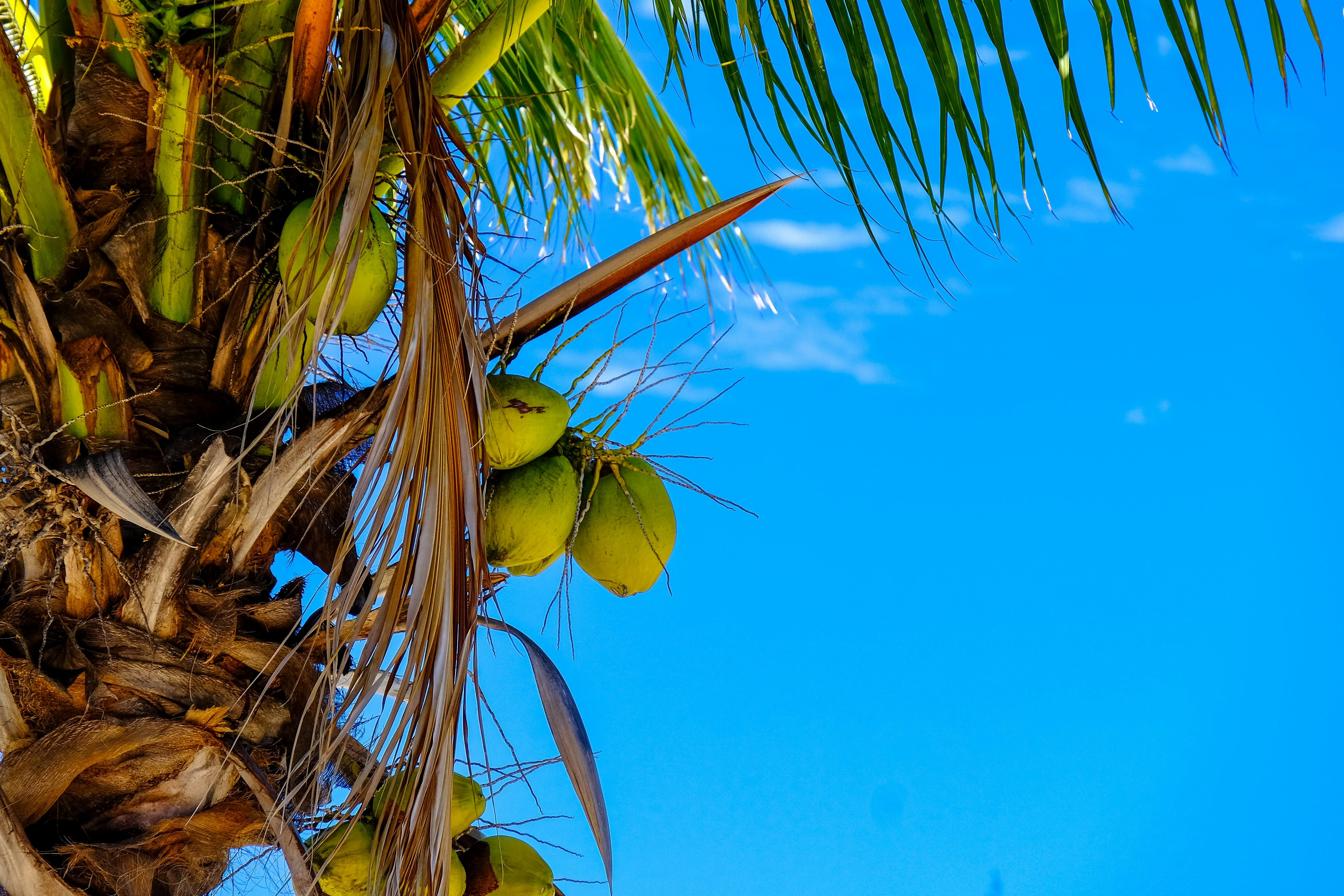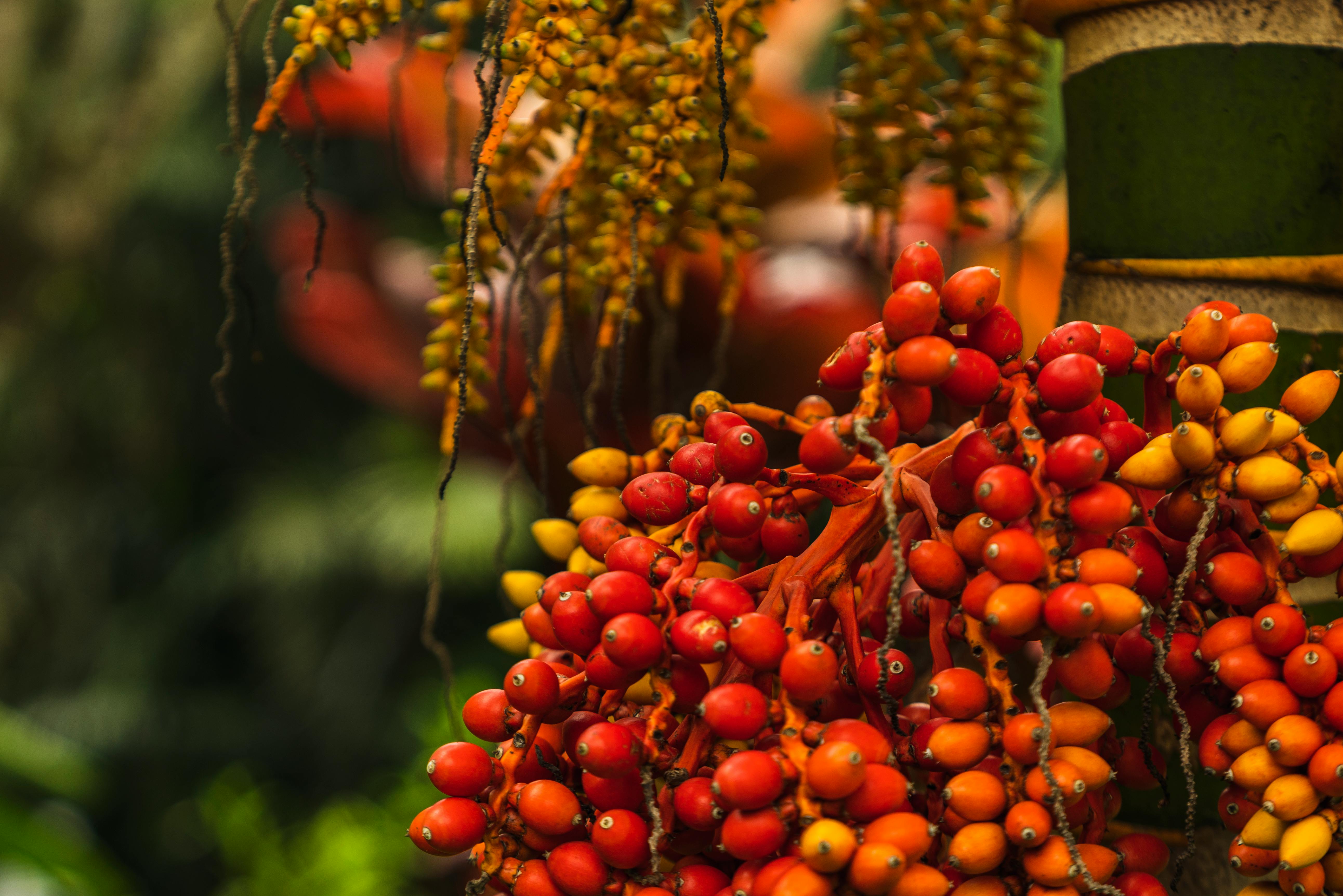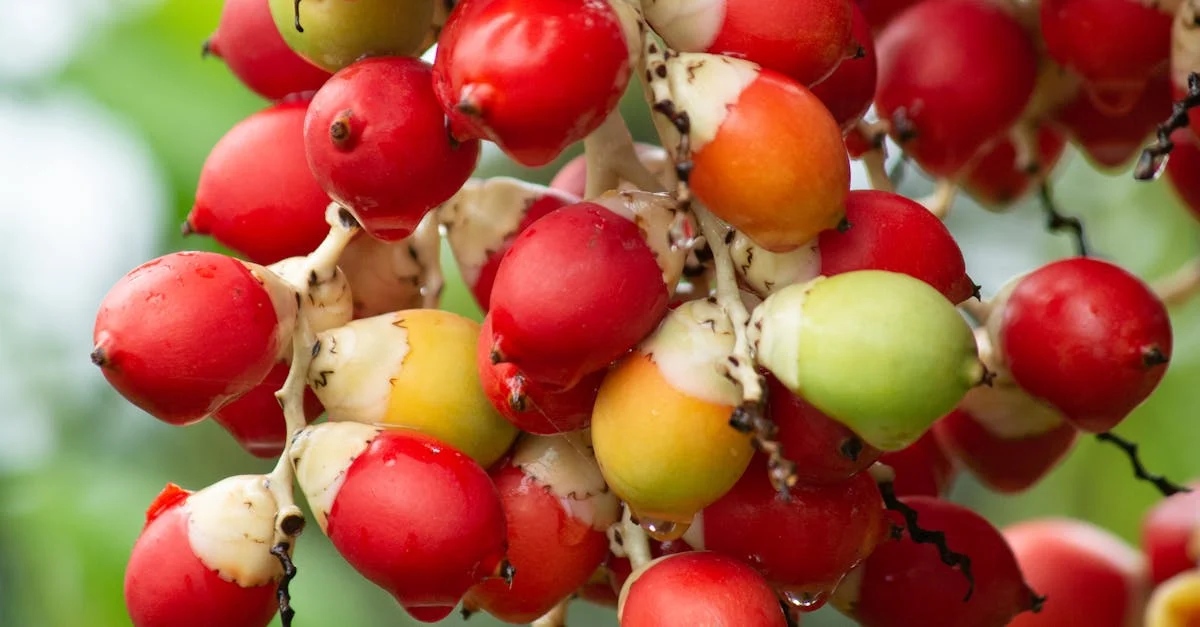Unveiling the Allure of Palm Tree Fruit: A Guide to Nature’s Tropical Delight
Introduction

Palm trees, with their iconic stature and widespread presence in tropical and subtropical regions, are often celebrated for their swaying fronds and picturesque landscapes. However, beyond their aesthetic appeal lies a lesser-known treasure: palm tree fruit. These delectable fruits, borne by various palm species, hold not only culinary significance but also boast a rich cultural heritage and offer a myriad of health benefits. Join us as we embark on a journey to explore the allure of palm tree fruit, uncovering its diverse varieties, nutritional value, culinary uses, and cultural significance.
Origins and Evolution: Tracing the Roots of Palm Tree Fruit
In the lush landscapes of tropical regions, palm trees have stood tall for millennia, bearing witness to the passage of time and the evolution of life on Earth. From the ancient civilizations of Mesopotamia to the empires of Egypt and beyond, palm tree fruit has been revered as a symbol of fertility, abundance, and prosperity. The journey of palm tree fruit from seed to harvest is a testament to the resilience and adaptability of nature, shaping ecosystems and cultures alike.
Cultural Significance: Sacred Symbolism and Culinary Traditions
Across cultures and civilizations, palm tree fruit holds a special place in rituals, festivals, and culinary traditions. In the Middle East, dates are revered as a symbol of hospitality and generosity, often served to guests as a gesture of welcome. In South Asia, coconut plays a central role in religious ceremonies and daily life, revered for its versatility and nourishing properties. From the Americas to Africa, palm tree fruit has been woven into the fabric of culture, offering sustenance to generations.
Nutritional Powerhouse: Health Benefits of Palm Tree Fruit
Beyond its cultural significance, palm tree fruit boasts a plethora of health benefits, making it a valuable addition to any diet. Rich in vitamins, minerals, and antioxidants, palm tree fruit promotes heart health, boosts immunity, and supports digestion. Whether enjoyed fresh or incorporated into dishes, palm tree fruit offers a delicious and nutritious way to nourish the body and soul.
Culinary Versatility: From Sweet to Savory

From refreshing coconut water to decadent date desserts, palm tree fruit lends itself to a myriad of culinary creations. Whether used as a natural sweetener in smoothies and desserts or as a savory ingredient in curries and salads, palm tree fruit adds a unique flavor and texture to any dish. With its versatility and adaptability, palm tree fruit inspires chefs and home cooks alike to explore new culinary horizons.
Sustainable Harvesting: Preserving Nature’s Bounty
As custodians of the environment, it is imperative that we embrace sustainable harvesting practices to ensure the longevity of palm tree fruit for future generations. By supporting local farmers and producers who prioritize ethical and eco-friendly practices, we can help preserve the delicate balance of ecosystems and protect the biodiversity of our planet. Together, we can ensure that the fruit of palm trees continues to enrich our lives and landscapes for years to come.
Varieties of Palm Tree Fruit
Palm trees belong to the botanical family Arecaceae, encompassing over 2,500 species distributed across the globe. Each species produces fruit with distinct characteristics, flavors, and culinary applications. Among the most renowned palm tree fruits are:
- Coconut (Cocos nucifera): Widely recognized for its versatility and nutritional benefits, the coconut is perhaps the most famous palm tree fruit. Encased in a tough, fibrous husk, the coconut harbors refreshing, sweet-tasting water and a rich, creamy flesh, prized for its culinary uses in both savory and sweet dishes.
- Date Palm (Phoenix dactylifera): Revered as the “tree of life” in many cultures, the date palm yields succulent, sweet dates, revered for their rich flavor and chewy texture. Dates are a staple in Middle Eastern cuisine and are celebrated for their natural sweetness, making them a popular ingredient in desserts, snacks, and even savory dishes.
- Açaí Palm (Euterpe oleracea): Native to the Amazon rainforest, the açaí palm produces small, dark purple berries known as açaí berries. Packed with antioxidants, vitamins, and essential nutrients, açaí berries have gained popularity worldwide for their health benefits and are commonly consumed in smoothies, bowls, and juices.
- Palmyra palm (Borassus flabellifer): Native to South and Southeast Asia, the palmyra palm yields palmyra fruit, also known as “ice apple” or “toddy palm fruit.” With a jelly-like consistency and a mildly sweet flavor, palmyra fruit is enjoyed fresh or incorporated into desserts and beverages.
Nutritional Value and Health Benefits

Palm tree fruit is not only a culinary delight but also a nutritional powerhouse. Rich in vitamins, minerals, antioxidants, and dietary fiber, palm tree fruit offers a plethora of health benefits, including:
- Improved Digestive Health: The high fiber content of palm tree fruit promotes digestive regularity and helps prevent constipation, bloating, and other gastrointestinal issues.
- Enhanced Immunity: Palm tree fruit is packed with vitamins and antioxidants that bolster the immune system, protecting the body against infections, inflammation, and oxidative stress.
- Heart Health: Certain varieties of palm tree fruit, such as dates and açaí berries, contain heart-healthy nutrients like potassium and antioxidants, which support cardiovascular function and help regulate blood pressure and cholesterol levels.
- Skin and Hair Health: The vitamins and antioxidants found in palm tree fruit contribute to healthy skin, hair, and nails, promoting collagen production, combating free radical damage, and delaying signs of aging.
Culinary Uses and Cultural Significance
Throughout history, palm tree fruit has played a significant role in various culinary traditions and cultural practices around the world. From traditional dishes to festive celebrations, palm tree fruit holds a special place in the hearts and palates of many cultures.
- Middle Eastern Cuisine: Dates are a staple ingredient in Middle Eastern cuisine, featured prominently in sweet treats like date-filled pastries, cakes, and puddings, as well as savory dishes like tagines and stews.
- Tropical Beverages: Coconut water, extracted from young coconuts, is a popular tropical beverage renowned for its refreshing taste and hydrating properties. It is enjoyed fresh or used as a base for smoothies, cocktails, and mocktails.
- Rituals and Ceremonies: In many cultures, palm tree fruit is imbued with symbolic significance and is often used in religious rituals, ceremonies, and festive celebrations. For example, dates are traditionally consumed during Ramadan to break the fast, symbolizing sustenance and blessings.
Conclusion
Palm tree fruit embodies the essence of tropical abundance, offering a tantalizing fusion of flavors, textures, and nutritional benefits. From the creamy flesh of coconuts to the sweet succulence of dates, each variety of palm tree fruit carries with it a rich cultural heritage and a wealth of culinary possibilities. Whether enjoyed fresh, dried, or incorporated into dishes and beverages, palm tree fruit continues to captivate taste buds and inspire culinary creativity worldwide, inviting us to savor the bounty of nature’s tropical delight.
FAQ’s
- What are some common types of palm tree fruit?
- Some common types of palm tree fruit include coconut, date palm fruit (dates), açaí berries, and palmyra fruit (ice apple).
- Are palm tree fruits nutritious?
- Yes, palm tree fruits are highly nutritious. They are rich in vitamins, minerals, antioxidants, and dietary fiber, offering various health benefits such as improved digestion, enhanced immunity, and support for heart health.
- How can I incorporate palm tree fruit into my diet?
- Palm tree fruit can be enjoyed in a variety of ways. You can consume them fresh, dried, or processed into products like coconut water, coconut milk, date syrup, or açaí bowls. They can also be used as ingredients in smoothies, desserts, salads, and savory dishes.
- Are palm tree fruits suitable for people with dietary restrictions or allergies?
- While palm tree fruits are generally safe for consumption, individuals with specific allergies or dietary restrictions should exercise caution. For example, coconut is a tree nut, so individuals with nut allergies should avoid it. Additionally, some people may be allergic to pollen from date palms.
- Where can I find palm tree fruits?
- Depending on the type of palm tree fruit, they can be found in tropical or subtropical regions where the respective palm species grow. In many places, you can find palm tree fruits in local markets, grocery stores, or specialty stores, and some are also available for purchase online.
- Are there any cultural or traditional uses of palm tree fruits?
- Yes, palm tree fruits hold significant cultural and traditional importance in many regions around the world. For example, dates are often consumed during religious rituals and festive celebrations in Middle Eastern cultures, while coconut plays a central role in the culinary traditions of tropical regions.
- What are the health benefits of consuming palm tree fruits?
- Palm tree fruits offer a range of health benefits, including improved digestive health, enhanced immunity, support for heart health, and promoting healthy skin and hair. They are also valued for their antioxidant properties and nutrient content.
- Can palm tree fruits be stored for long periods of time?
- The storage requirements for palm tree fruits vary depending on the type of fruit. Generally, fresh palm tree fruits like coconuts and dates can be stored for several weeks when kept in a cool, dry place. Processed products like coconut water or dried fruits may have different storage recommendations, so it’s best to follow the manufacturer’s instructions.



